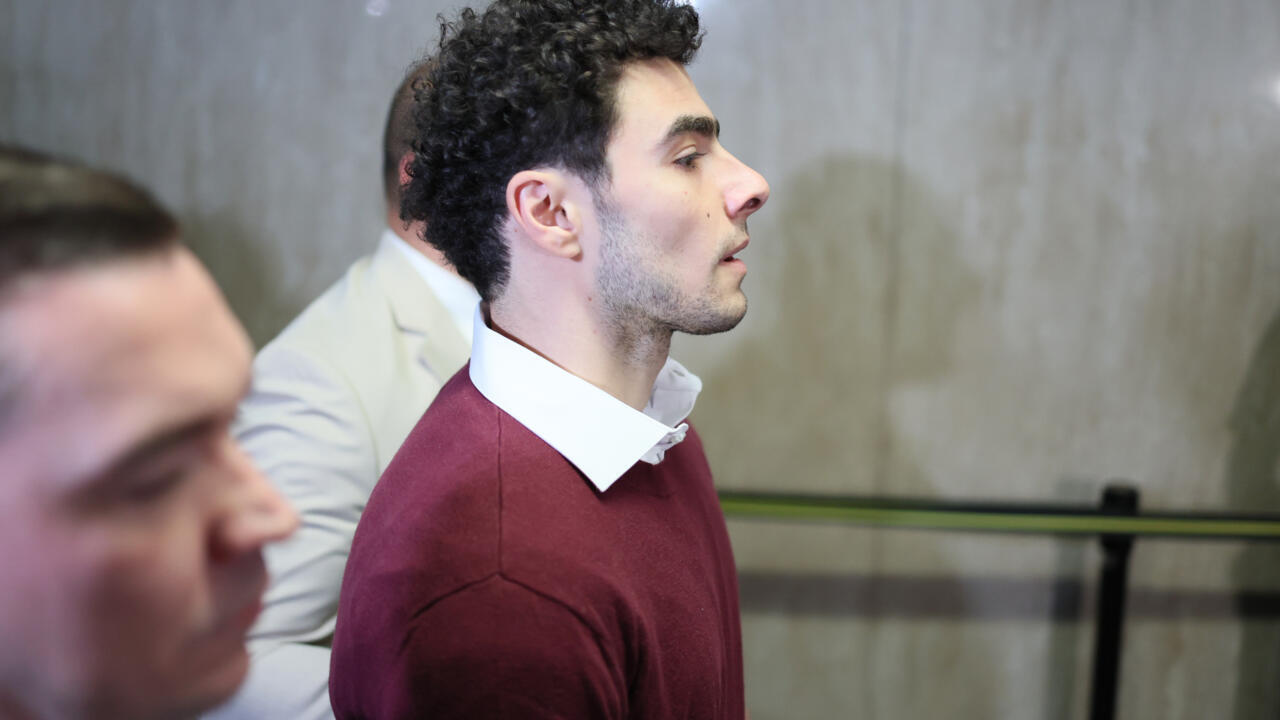The man accused of gunning down a health insurance executive in a brazen hit in New York that sparked fierce debate about the industry pleaded not guilty Monday to state charges including “terrorist” murder.
Monday’s hearing came after Mangione, 26, appeared in a New York court last week to face federal charges also including murder following his dramatic extradition by plane and helicopter from Pennsylvania, where he was arrested at a McDonald’s restaurant. The suspect is charged in both state and federal court in the December 4 shooting of UnitedHealthcare chief executive Brian Thompson.
People demonstrating against the industry gathered outside court Monday brandishing banners reading “free Luigi” and “innocent until proven guilty.”
If convicted in the state case, Mangione could face life imprisonment with no parole. In the federal case, he could technically face the death penalty.
Mangioni’s attorney Karen Friedman Agnifilo has previously sought clarity on how simultaneous federal and state charges would work, calling the situation “highly unusual.”
Agnifilo raised concerns on Monday that Mangione could not receive a fair trial, and questioned why New York mayor Eric Adams had been present when Mangione was brought off a police helicopter at a Manhattan helipad last week. Aginifilo told local media Monday that officials “are treating him like he is like some sort of political fodder.” She said the sight of Mangione flanked by rifle-wielding tactical officers during the final stage of his extradition that was widely broadcast was “utterly political.”



That doesn’t really matter.
A grand jury decides if theres enough evidence for an indictment, not determine guilt. Whether the evidence is enough for conviction, is not up to them. Only half is required to indict. A non-indictment is not an acquital.
Murder has no statute of limitations.
They’ll just wait for a different grand jury and get to try to get an indictment again, this time, probably with less media coverage and less scrutiny.
The petit jury, or trial jury, decides if evidence is legit. This is where it really matters.
You can keep convening grand juries against someone for the same event until they agree to indict? That seems dubious. And is especially damning in the context of police that don’t get indicted and never go to trial.
Think about it this way. The grand jury is basically taking on the role of a prosecutor for the sole decision of whether or not to indict, after that, the actual prosecutor takes over.
If you are a civillian, and the prosecutor that has jurisdiction refuses to prosecute, say, the murder of your child, you can then wait for the prosecutor to lose office (either by losing an election, or wait for someone else to get appointed, depending on how its selected in your area), then ask the new prosecutor to file the charges, and since murder has no statute of limitations, you can keep trying this until a prosecutor decides to indict.
This is essentially what a grand jury is. They are temporary taking the role of the prosecutor, for one act, and one act only, deciding whether or not to indict.
Right, but that doesn’t answer if they convene a grand jury for a specific alleged crime, and the grand jury says “no”, can they try again with a new jury? For the same alleged crime? That seems like an obvious flaw in that they can just keep trying until they get an indictment and can proceed. There’d be no point in the grand jury step because it eventually returns an indictment.
Edit: Internet is telling me
Which seems insane.
https://www.arnoldsmithlaw.com/who-decides-whether-or-not-i-will-be-charged-with-a-crime.html
Our legal system seems really bad, folks